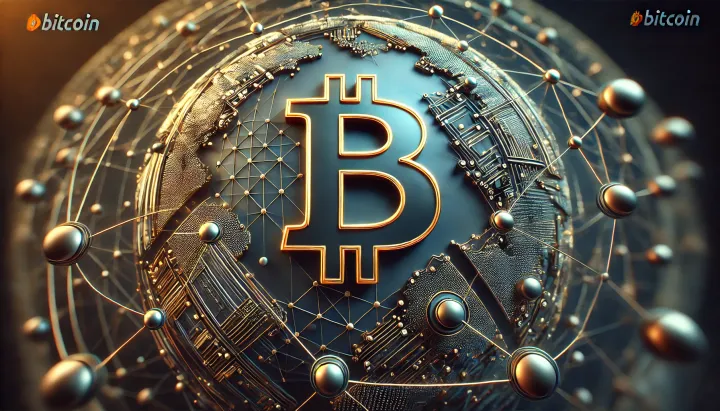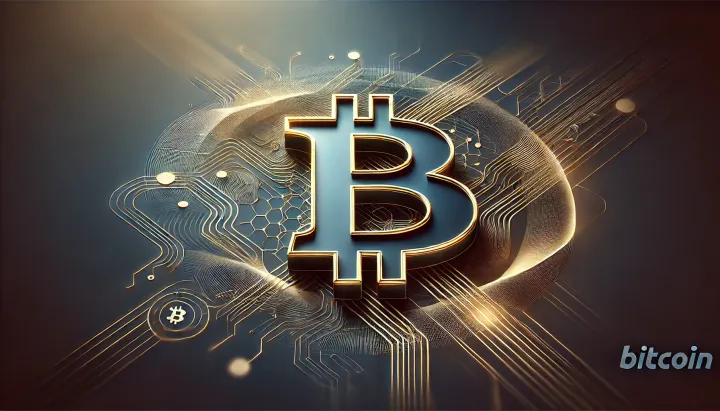Bitcoin 2025: From China's Ban to US Strategic Reserves
On April 02, 2025, the Robin Seyr Podcast featured Pierre Rochard discussing how regulatory shifts, strategic Bitcoin reserves, and evolving market dynamics are reshaping Bitcoin’s role as a decentralized monetary system.

- My 'briefing notes' summarize the content of podcast episodes; they do not reflect my own views.
- They contain (1) a summary of podcast content, (2) potential information gaps, and (3) some speculative views on wider Bitcoin implications.
- Pay attention to broadcast dates (I often summarize older episodes)
- Some episodes I summarize may be sponsored: don't trust, verify, if the information you are looking for is to be used for decision-making.
Summary
On April 02, 2025, the Robin Seyr Podcast featured Pierre Rochard discussing how regulatory shifts, strategic Bitcoin reserves, and evolving market dynamics are reshaping Bitcoin’s role as a decentralized monetary system. The conversation highlighted transformative policy proposals and environmental debates that carry significant domestic and international implications. These insights underscore the potential for a more stable and competitive global financial landscape.
Take-Home Messages
- Regulatory Shift: Evolving policies are redefining Bitcoin mining practices and industry standards.
- Strategic Reserves: Proposals for national Bitcoin reserves could transform monetary stabilization efforts.
- Market Dynamics: Bitcoin’s cyclical adoption and herd behavior present both growth opportunities and risks.
- Bipartisan Engagement: Cross-party support is essential for developing sustainable Bitcoin policies.
- Global Competitiveness: Domestic policy changes are influencing international market positioning and strategic responses.
Overview
Pierre Rochard discusses how China’s ban on Bitcoin mining shifted operations to the United States, igniting a wave of regulatory and policy debates. He suggests that this was a pivotal moment in recognizing Bitcoin’s potential as a decentralized monetary system.
Rochard outlines initial environmental criticisms and political opposition, which later evolved into strategic proposals such as the establishment of a national Bitcoin reserve. He emphasizes how proactive communication helped reframe the debate and bolster Bitcoin’s legitimacy.
The episode contrasts Bitcoin’s rapid store-of-value adoption, driven by strong network effects, with the slower evolution of its payment functionalities. Rochard highlights that market dynamics—marked by cyclical price trends and herd behavior—play a critical role in this divergence.
The podcast concludes by examining the broader political and international implications of these developments. Rochard stresses that bipartisan support and clear messaging are essential for Bitcoin’s sustainable growth and for shaping future global monetary policies.
Stakeholder Perspectives
- Policymakers must balance environmental mandates with the need for innovative monetary policy.
- Bitcoin industry leaders advocate for robust, decentralized network security and proactive regulatory engagement.
- Environmental groups demand transparency and accountability in Bitcoin mining practices.
- Traditional financial institutions and international competitors monitor Bitcoin’s integration into mainstream finance.
- Political parties face the challenge of reconciling ideological differences to support forward-thinking Bitcoin policies.
Implications and Future Outlook
The podcast suggests that strategic initiatives like national Bitcoin reserves could reshape monetary policy by providing alternative stabilization mechanisms. Such policies may help mitigate inflation risks while reinforcing Bitcoin’s role as a secure store of value. Collaboration between industry stakeholders and policymakers will be vital to realizing these benefits.
Bitcoin’s unique market dynamics, driven by cyclical adoption and herd behavior, highlight both significant growth potential and inherent volatility. A deeper understanding of these dynamics can inform regulatory frameworks that protect market stability while fostering innovation. Addressing these issues is crucial for ensuring long-term economic resilience.
On the international stage, the U.S. policy shifts discussed by Rochard may prompt competing nations to reevaluate their monetary frameworks. Global stakeholders could adopt similar strategies, triggering a realignment of economic power. Ongoing innovation and bipartisan support are essential for leveraging Bitcoin’s potential in a competitive global market.
Information Gaps
- How can a strategic Bitcoin reserve be structured to effectively influence monetary policy without triggering inflation? This question is critical because it explores designing a tool that could stabilize economic frameworks while managing inflation risks.
- What strategies can be employed to build bipartisan consensus on Bitcoin-related policies? This inquiry addresses the challenge of overcoming partisan divides to foster uniform support for sustainable regulatory frameworks.
- How can Bitcoin mining operations be optimized to mitigate environmental concerns without compromising scalability? This question tackles the dual challenge of balancing eco-friendly practices with continued growth in mining efficiency.
- How might US policies on strategic Bitcoin reserves influence global Bitcoin market dynamics? This question examines the international ramifications of domestic policy decisions, which are key to understanding global competitive positioning.
- How can financial instruments like Bitcoin-backed bonds bridge traditional finance and Bitcoin markets? This inquiry explores integrating Bitcoin into established financial systems to broaden its appeal and liquidity.
Broader Implications for Bitcoin
Bitcoin as a Monetary Stabilizer
Bitcoin’s evolution into a strategic reserve asset could recalibrate national monetary policies by providing an alternative stabilization tool. This shift may reduce reliance on traditional fiat mechanisms and influence global economic trends. Broader adoption of such strategies can strengthen Bitcoin’s credibility as a foundation for long-term financial stability.
Environmental Reformation and Innovation
Enhanced mining practices and effective environmental communication may drive innovation in sustainable energy usage within the Bitcoin ecosystem. Improved operational efficiencies could set new industry standards for environmental responsibility. This transformation might also encourage cross-sector collaborations to address global ecological challenges.
Global Policy Realignment
U.S. policy shifts on Bitcoin may trigger competitive responses from international stakeholders, leading to a reconfiguration of global financial strategies. As nations explore similar strategic reserves and regulatory reforms, the global balance of economic power could shift. This realignment underscores the potential for Bitcoin to serve as a catalyst for comprehensive monetary reform.



Comments ()